Along with having exceptional medical skills, future medical workers should develop critical perspectives on various medical specialties. A fantastic way to do this is by reading excellent books!
Studying other books on top of the reading required for medical school can be challenging. However, as an aspiring physician, you must read to have advanced knowledge that you will need in the future.
Before you apply to medical school, we suggest perusing some top-notch books to help you develop into a well-rounded future doctor.
If you want the best books for premed students, this article is for you. We have listed 30 books that will benefit you during your pre-med journey.
Why Should You Read Outside the Classroom?
Premed students are incredibly knowledgeable in specialized fields of science. Therefore, medical schools are drawn to students who know "a little about a lot."
However, admissions panels seek well-rounded applicants whose knowledge extends beyond the fundamental scientific prerequisites.
In other words, they are looking for students with vast knowledge of different disciplines.
Additionally, applicants who are aware of the potential intersections between these fields and medicine (e.g., the economics of healthcare and insurance, major ethical issues).
Beyond finishing a physician shadowing program, reading frequently and widely is one of the best ways to develop this knowledge. And no, browsing Facebook's newsfeed is not considered to be reading.
Fortunately, there are many resources available that provide thorough, trustworthy knowledge. Again, we suggest The New York Times, NPR, and FiveThirtyEight for recent news.
Aside from reading and being up-to-date with the latest news about medicine and science, further reading will be your best advantage in medical school.
Literature, history, fiction, and nonfiction books that paved the way for treatment are just some books you must read.
30 Best Books for Premed Students
As you sit down to compose your personal statement or secondary essays, the books you have read might provide some food for thought.
In addition, the interviewer for a medical school will frequently ask you to remark on a recent book you read.
That said, you should look through the list of books below and choose a few to read during your free time to improve your volunteer work, clinical experiences, and discussions with doctors.
Here are the best books for premed students (arranged in alphabetical order):
Adventures of a Female Medical Detective
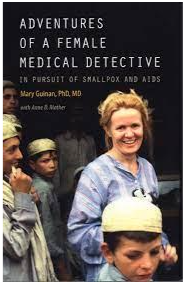
In Adventures of a Female Medical Detective, Mary Guinan weaves twelve colorful tales from her medical career. Each details a unique experience she had managing outbreaks, discovering new illnesses, and providing care for patients worldwide.
Guinan's narrative of her trailblazing career is at times tragic and other times humorous. It will encourage future medical investigators and public health students.
Furthermore, it provides all readers insight into the branch of the government that is solely responsible for safeguarding their health.
America's Bitter Pill
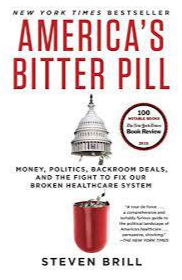
The book America's Bitter Pill by Steven Brill examines how the Affordable Care Act, known as Obamacare, was drafted and implemented. But, most importantly, it addresses widespread fraud and abuse in the healthcare sector—or fails to address it.
It provides an insider's view of the epic battle to approve a 961-page bill to reform the country's most significant and dysfunctional sector.
The book is a sharp account of how profiteering — which Brill first exposed in his ground-breaking Time magazine cover story — ontinues today, despite Obamacare.
It is also the first thorough insider account of how President Obama persisted in passing the law but failed to address the staff incompetence that hampered its implementation.
An American Sickness
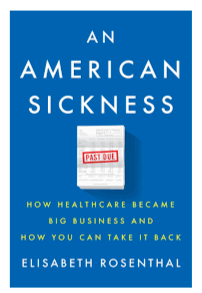
Elisabeth Rosenthal, a doctor, is working to improve the system through her book An American Sickness.
She recognizes the problems, gives a diagnosis, and prescribes the U.S. healthcare system as one of her patients.
She guides the viewer through the complexities of the American healthcare system and what led to its collapse. This book is for anyone interested in healthcare economics or getting ready to respond to queries about it in interviews.
Atomic Habits
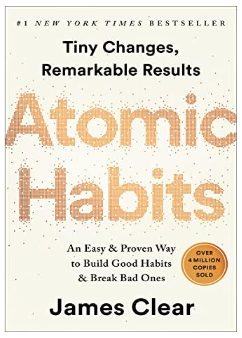
Atomic Habits provides a tried-and-true framework for constant improvement, regardless of your ambitions.
James Clear shares actionable techniques to show you how to develop positive habits, break bad ones and master the minute actions that produce excellent outcomes.
Suppose you want to change your habits, whether you are a team trying to win a championship or just a person trying to stop smoking. In that case, Atomic Habits will change your thoughts about progress and success.
Being Mortal
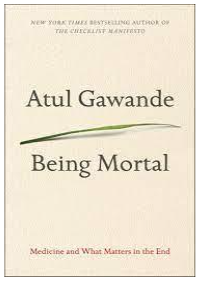
It can be challenging to discuss mortality in public. Yet, while guiding their patients through end-of-life care, doctors frequently interact closely with the dying process.
One such doctor with a wealth of knowledge about this complex topic is Atul Gawande. He offers a collection of tales that shed light on two frequently ignored facets of medicine in his book, Being Mortal.
Geriatrics (medical treatment for the elderly) and hospice (medical care for the terminally ill) are just some of the book's main focus.Complications
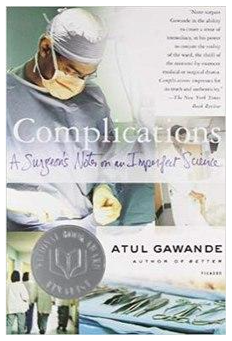
American surgeon Atul Gawande published a nonfiction book titled Complications: A Surgeon's Reflections on an Imperfect Science. This was written by Gawande while he was a resident in surgery at Brigham & Women's Hospital in 2002.
The three sections of the book—Fallibility, Mystery, and Uncertainty—delve deeply into the challenges doctors may encounter. At the same time, they carry out a range of medical treatments.
As a result, each section outlines many difficulties physicians must overcome, which inevitably lead to mistakes due to their flaws and blunders.
Cutting for Stone
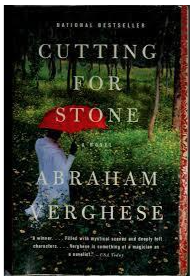
Abraham Verghese, a physician, and author of Indian descent born in Ethiopia, published a novel entitled Cutting for Stone. It is a story of twin brothers who were abandoned by their father and left orphaned after the death of their mother in infancy.
The book explores the human side of medical practices and provides a thorough account of medical processes.
The book earned favorable reviews from critics and spent two years as a best seller when it was initially released. Barack Obama added it to his summer reading list when it received favorable reviews. The book was optioned for film adaptation.Deep Work
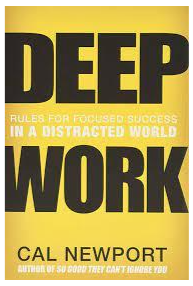
Author and lecturer Cal Newport twists the narrative about the effect of a connected world in his book Deep Work. Instead of arguing that distraction is bad, he embraces its opposite power.
Deep Work is a combination of practical advice and cultural criticism. It takes the reader through memorable stories — from Carl Jung erecting a stone tower in the woods to focus his mind as a social media pioneer. Everyone looking for concentrated success in a distracted environment should read Deep Work.Eyes Wide Open
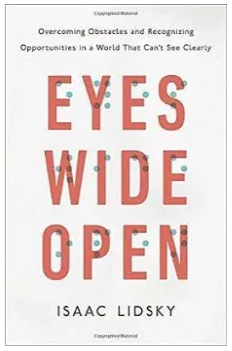
The author of this New York Times best-seller, Isaac Lidsky, shows readers that reality is not determined by external conditions but rather by how they perceive and react. He draws on his experience of experiencing great success, joy, and contentment while blinded by a sickness.
The principles and mindsets presented in Eyes Wide Open are essential for leading a fruitful, fulfilling, and regret-free life.
In addition, Lidsky demonstrates to the readers how they may face life's challenges with initiative, humor, and grace by sharing his hard-won knowledge.
Final Exam: A Surgeon's Reflections on Mortality
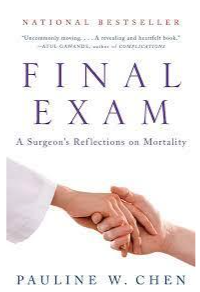
Pauline Chen had the desire to rescue lives when she first enrolled in medical school twenty years ago. However, she underestimated how much death would factor into her writing. Chen was confronted with medicine's most challenging dichotomy — that a field built on helping the sick also routinely depersonalizes death — very quickly.
Final Exam: A Surgeon's Reflections on Mortality follows Chen throughout her education, training, and practice as she confronts the issue of mortality up close, tries to balance the lessons of her education with her innate understanding of shared humanity, and struggles to keep her ideas about healing separate from her ferocious desire to heal.Grit: The Power of Passion and Perseverance
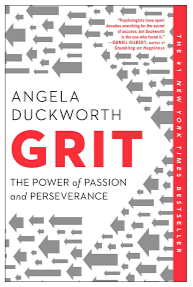
Pioneering psychologist Angela Duckworth demonstrates to parents, educators, students, and businesspeople that grit is the key to exceptional achievement in her book Grit: The Power of Passion and Perseverance.
Drawing on her compelling experience as the daughter of a scientist who often lamented her lack of intellect, Duckworth describes her winding path through teaching, business consulting, and neuroscience.
She established her own character lab while working as a lecturer and professor at the University of Pennsylvania to put her theory to the test.Hot Lights, Cold Steel
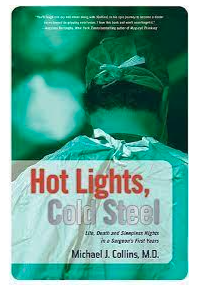
Michael J. Collins is utterly unprepared for the hectic life of a resident at a prominent hospital when he decides to pursue a career in surgery. Collins was a born overachiever in high school, and med school led to a residency at the renowned Mayo Clinic, one of the most prestigious medical institutions in the world.
Collins, however, feels unprepared and inadequate in comparison to his neighbors. Too soon, the excitement of starting his career as an orthopedic resident is replaced with the realization that he is an imposter who has infiltrated a group of esteemed physicians.
Hot Lights, Cold Steel, is a courageous and intensely moving reminder that doctors are also humans. This is a fascinating memoir that is occasionally heartbreaking, other times triumphant, but always compulsive reading.In Stitches
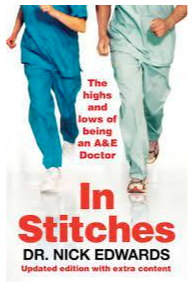
Anthony Youn was raised in a small community where whiteness was practically omnipresent as one of two Asian-American children. You can enter Dr. Youn's world in In Stitches as he prepares to become a doctor. He struggled mightily, yet he overcame his annoyances by inspiring his patients.
Left Neglected
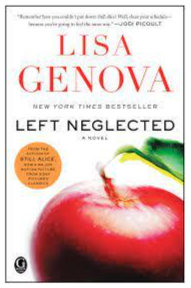
Left Neglected is a documentary written by Lisa Genova. It tells the story of a young, active mother who later experienced the terrible repercussions of a brain injury. It realistically portrays brain disorders, their rehabilitation, and the psycho-social problems they cause.
If you are a premed student thinking about a career in neurosurgery or want to stop and think about what really matters in life, this book is for you.
Med School Confidential
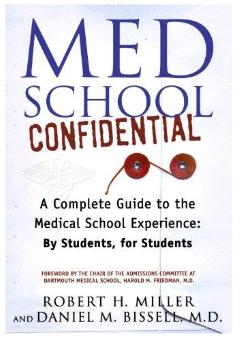
The authors of Law School Confidential and Business School Confidential, Robert Miller and Daniel Bissell, adopt the same chronological framework and mentor-based system in Med School Confidential, which has helped these books become precious and well-liked resources.
It guides the reader through every stage of the medical school process, from considering, applying to, and selecting a medical school and program to residencies, the four-year curriculum, internships, and fellowships, to choosing a specialization and locating the ideal career.
Med School Uncensored
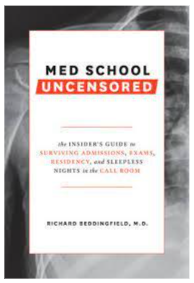
In his book Med School Uncensored, Richard Beddingfield, an anesthesiologist, acts as an older brother for pre-med and incoming med students. In this book, he shares all the information he would have wanted to know from the start to make the most of med school's opportunities.
He hopes to help medical students stay sane through the rigors of applying to and succeeding at med school, residency, fellowship, and beginning work as a new physician. This all-inclusive guide is necessary for anyone who aspires to become a doctor and includes guidance from more recent graduates of Ivy League medical schools and elite hospital residents.
Mountains Beyond Mountains
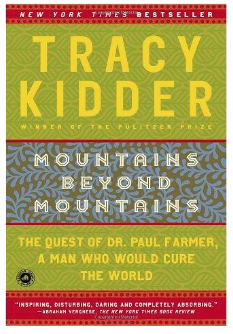
My Own Country tells the tale of a young infectious disease doctor in Johnson City, Tennessee, in the middle of the 1980s.
Abraham Verghese started treating patients with a previously undiagnosed condition. He became the town's AIDS expert due to the seemingly never-ending influx of patients who shared the same symptoms but for whom there was still no effective therapy.
A book of such depth and humanity emerged from the sorrow of many deaths and egregious acts of prejudice. The story is inspiring and promising even as it delves into the depths of human sadness.
My Stroke of Insight
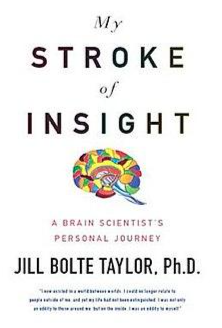
The book My Stroke Of Insight details the experience of a brain researcher who suffered a severe stroke and could not speak, read, write, or move. Jill Bolte Taylor used this experience to develop moving testimonies and practical recovery manuals for stroke and brain damage patients.
This book is for premed students and medical professionals who will treat people with brain injuries.
The Emperor of All Maladies
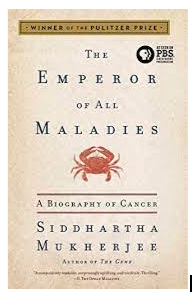
The Emperor of All Maladies achieves a delicate balance between complexity and readability. While you will be inundated with details about cancer and its treatment, Siddhartha Mukherjee's compelling narratives will make you read until the end.
He is exceptionally qualified to present the fascinating history of cancer and the tales of those who have firsthand experience with the illness. This includes patients and their families, doctors, researchers, and several other extraordinary people in an account that spans many centuries.
The House of God
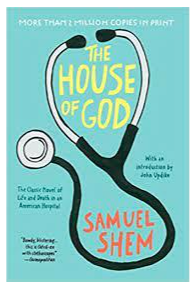
Published in 1978, The House of God is a satirical book by Samuel Shem, a pen name for psychiatrist Stephen Bergman. The book centers on the psychological damage and dehumanization brought on by the residency training of a group of medical interns in the early 1970s.
Once considered scandalous, the book—was described by The New York Times as "raunchy, disturbing, and hilarious." Nevertheless, it gained a cult following and eventually cemented its place in the developing conversation about humanism, ethics, and medical education.
The Immortal Life of Henrietta Lacks
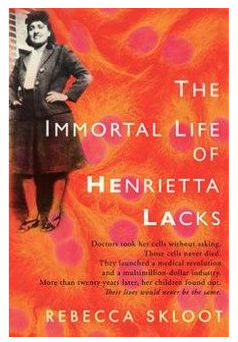
In 1951, Henrietta Lacks' cervical cancer cells gave rise to the immortal cell line, or HeLa, that bears her name. When a biology teacher mentioned Lacks but did not know much about her, Rebecca Skloot became intrigued.
Skloot started doing a lot of research on her and collaborated with Lacks' family to write the book.
The Immortal Life of Henrietta Lacks is famous for its scientific writing and discussion of concerns related to race and class in medical research that is ethically important.
According to Skloot, Henrietta Lacks' daughter Deborah's journal and "archival images and papers, scientific and historical research" was the source of some of the material.
The Intern Blues: The Classic About How a Doctor Is Made
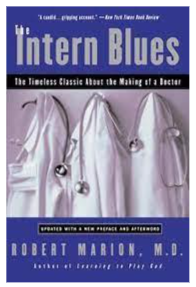
The Intern Blues updates the readers on the lives of the young interns who first shared their stories more than ten years ago. It discusses the state of medical education in America today.
Andy, Mark, and Amy recount their experiences dealing with seriously ill children. They face child abuse and the terrible human toll of the AIDS epidemic, avoiding the medical bureaucracy's indifference and overcoming their own worries, insecurities, and chronic exhaustion. Their personal success is unforgettable, and their stories are terrifying and frequently humorous.
The Premed Playbook Guide To The Med School Interview
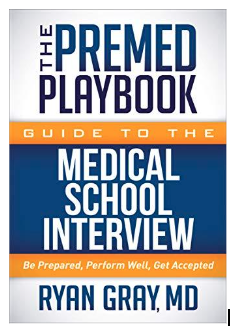
The Premed Playbook is a collection of Dr. Ryan Gray's knowledge gained from discussing the application process with professionals on The Premed Years podcast.
Learn why it is crucial to create your story, then discover how.
Next, find out why being unique is preferable to being superior.
Finally, discover how to excel at being the best-prepared premed student possible by avoiding common blunders.
This book provides over 600 prospective medical school interview questions you can start preparing responses to, divided into eleven categories, including MMI.
The Real Doctor Will See You Shortly
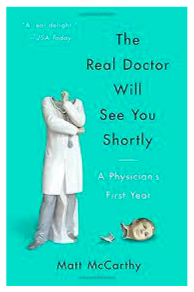
Matt McCarthy had a different type of doctor in mind in medical school—the kind of legendary, unflappable doctor who could connect with people who were impossible to reach.
Yet, he panicked when a new admittance to the critical care unit nearly passed away on his first night on call. Dreams of mastery swiftly gave way to hopes of just making it through a day in the hospital, where self-assurance was hard to come by.
No amount of medical school preparation could calm the fear of interacting with genuine patients.
The black-comic problem of being a doctor is highlighted in The Real Doctor Will See You Shortly. It gives readers a view of hospital life that avoids sanctimony and self-importance. How can you learn to save lives when no practice is involved in your employment?The Spirit Catches You & You Fall Down
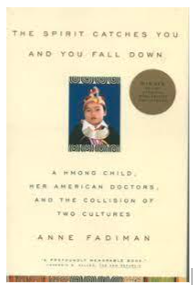
The Spirit Catches You & You Fall Down is a tragedy that has a breadth comparable to Shakespeare's and is written with the most profound human feeling. It is a book by Anne Fadiman that details the challenges of the Lee family.
The Soul Of A Doctor
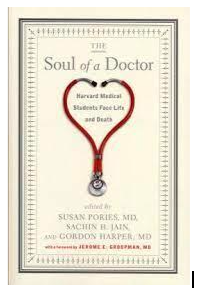
The sounds you hear in Susan Pories' The Soul Of A Doctor are those of third-year students just starting to assume clinical duties.
Their discussion centers on the peculiar shift students go through when dealing with actual people in actual situations and crises and when they have to set aside their emotions to make prompt, precise, and considerate decisions.
They do not always make the best choices, and the results can change everyone's lives.
Their actual experiences are affecting, upsetting, and honest; they reveal a side of the industry that few people ever see or could possibly imagine. These demonstrate how medical students mature at the bedside, often in a painful way.
Thinking, Fast and Slow
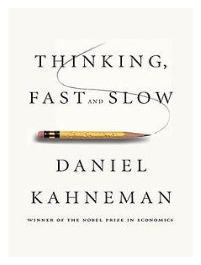
Each of us must make countless daily choices, such as whether to consume breakfast. "Is it too soon to don my go-to cardigan once more?" "What should I do with today's leisure time?"
How do we choose when there are so many options? Daniel Kahneman, who won the Nobel Prize (2002) in economics, presents decades of study on decision-making and heuristics in Thinking, Fast, and Slow, in an approachable and exciting manner.
What Doctors Feel
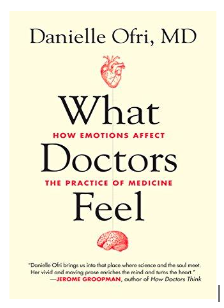
In her book, What Doctors Feel, Danielle Ofri investigates the vast array of emotions that permeate the modern doctor-patient relationship by delving deeply into the lives of doctors.
These feelings include shame, anger, empathy, frustration, pride, optimism, love, and sometimes despair. Dr. Ofri offers an uncompromising look at the effect of emotions on health care, drawing on scientific findings, some shocking.
When Breath Becomes Air
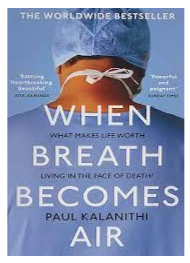
In his book When Breath Becomes Air, Paul Kalanathi skillfully describes his experiences as a student, patient, doctor, husband, and parent.
He was finally nearing the end of his neurosurgery residency program after spending over ten years in school and training.
Then a fatal cancer prognosis was made. How would he pass his final days of life now that the clock was clearly ticking? How did this incident, which profoundly impacted his life, alter his objectives and priorities?
Final Thoughts
These are just some of the best pre-med books you must read during medical school. We recognize that you place a high priority on your academic performance and grades.
However, you must be able to read proficiently and, more significantly, to love reading to succeed academically.
As stated earlier, medical schools seek well-rounded applicants knowledgeable beyond basic scientific skills.
As a future doctor, you must possess a vast understanding of your patients and your work environment.
After reading these books, spend some time understanding more about being a pre-med and what that entails for applying to medical school. The long-term benefit comes from developing the practice of reading.
